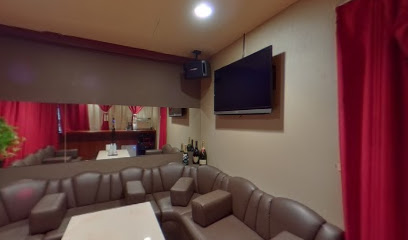
Nihonbashi: The Heart of Tokyo's Commerce and Culture
Explore Nihonbashi, Tokyo's historic district where tradition meets modernity, featuring shopping, dining, and cultural experiences.
Nihonbashi is a historic district in Tokyo that blends tradition with modernity. Famous for its iconic bridge, the area is a hub for shopping, dining, and cultural experiences that reflect the essence of Japanese heritage.
A brief summary to Nihonbashi
- Chuo City, Nihonbashi, Tokyo, JP
Local tips
- Visit early in the morning to enjoy quieter streets and better access to popular shops.
- Try to explore the back alleys for hidden gems and local eateries.
- Check local event calendars for seasonal festivals and cultural activities during your visit.
- Take a guided walking tour to learn about the rich history and significance of the area.
- Don't miss the chance to sample traditional sweets at local confectioneries.
Getting There
-
Subway
If you are near Tokyo Station, take the Marunouchi Line towards Ogikubo. Get off at the next stop, which is Nihonbashi Station. From the station, take Exit B. Once you exit, you will be in the heart of Nihonbashi, surrounded by shops and eateries.
-
Bus
Find the nearest bus stop and take a bus that heads towards 'Nihonbashi'. Multiple bus lines serve this area. When you arrive at the Nihonbashi stop, disembark and follow the signs pointing towards Nihonbashi Bridge, which is a key landmark in the area.
-
Walking
If you are staying in the nearby areas of Chuo or Ginza, you can enjoy a pleasant walk to Nihonbashi. Head towards the Nihonbashi Bridge which is about a 15-20 minute walk from Ginza. Look for the signs pointing towards Nihonbashi or use a map app on your phone to guide you directly to the bridge.
-
Taxi
If you prefer a taxi, simply hail one and tell the driver 'Nihonbashi' (日本橋). It's a well-known location, and the driver will take you directly there. Ensure you have cash or a credit card ready, as not all taxis accept card payments.
Discover more about Nihonbashi
Iconic landmarks you can’t miss
Nihonbashi
0.0 km
Explore Nihonbashi, Tokyo's historic district where tradition meets modernity, featuring shopping, dining, and cultural experiences.

Nihonbashi Bridge
0.3 km
Explore Nihonbashi Bridge in Tokyo, where history meets modernity. Discover the architectural beauty and cultural significance of this iconic landmark.
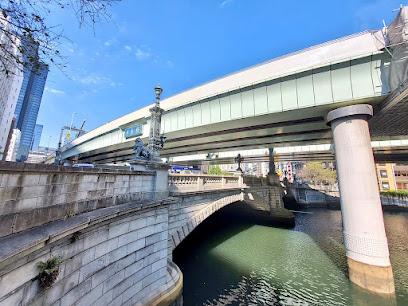
Zero Milestone In Japan
0.4 km
Discover the Zero Milestone in Tokyo's Nihonbashi: the historic origin of Japan's roads and distances, blending tradition with modern city life.
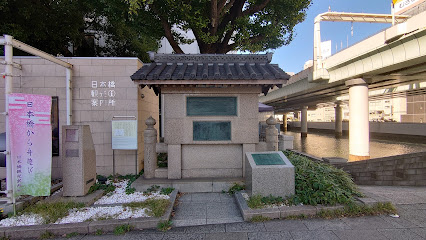
Tokyo Station
0.6 km
Discover the architectural beauty and vibrant atmosphere of Tokyo Station, a crucial transit hub and historical landmark in the heart of Tokyo.
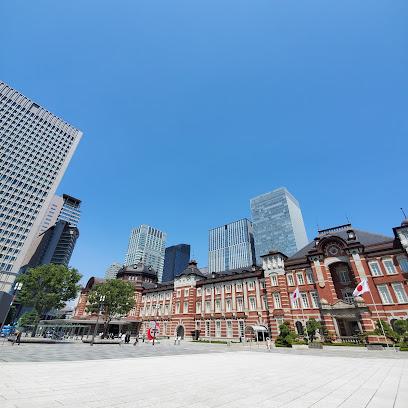
Katsuragawa Hoshuyashiki Ruins/Monument
0.7 km
Discover the Katsuragawa Hoshuyashiki Ruins, a serene historical landmark in Tokyo, perfect for history lovers and peaceful reflection.

Remains of Tokyo Prefectural Office
0.9 km
Discover the historic Remains of the Tokyo Prefectural Office, a captivating blend of architectural beauty and historical significance in the heart of Tokyo.
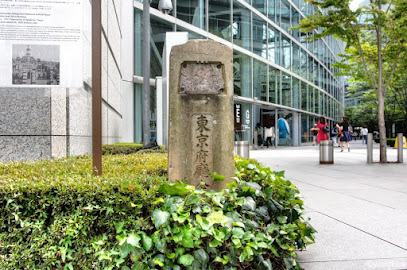
Mitsubishi Ichigokan Museum
1.0 km
Explore the captivating Mitsubishi Ichigokan Museum in Tokyo, where contemporary art meets historical architecture in a unique cultural experience.
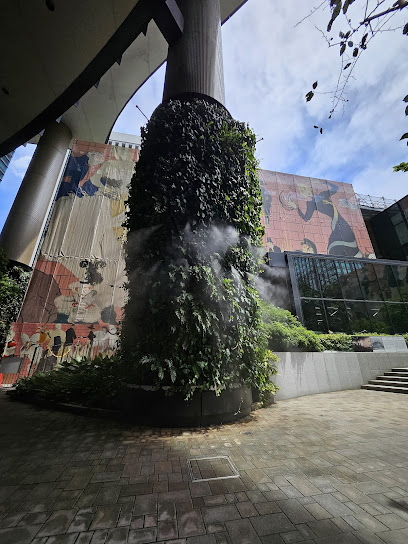
Origin of Ginza Monument
1.1 km
Discover the historical roots of Ginza at the Origin of Ginza Monument, a must-visit site that captures Tokyo's vibrant past and modern allure.
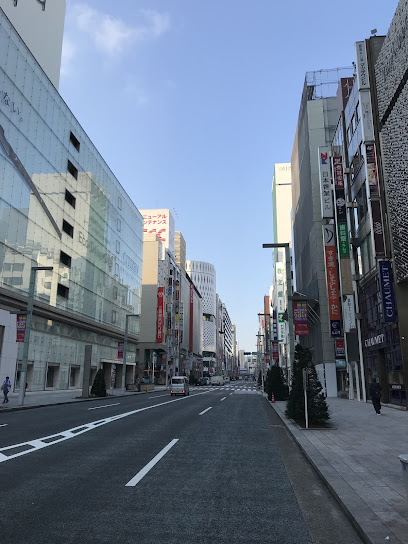
Wadakura-mon Gate
1.2 km
Explore the serene beauty and historical significance of Wadakura-mon Gate, the majestic entrance to Tokyo's Imperial Palace, set in lush gardens.
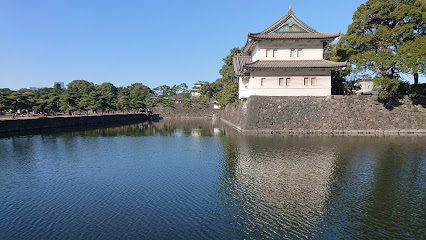
Eitai Bridge
1.3 km
Discover the architectural beauty and scenic views of Eitai Bridge, a must-see landmark in Tokyo that embodies the city's spirit and history.
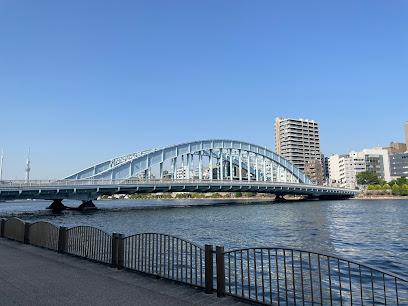
Seiko House Ginza Clock Tower
1.3 km
Discover the elegance of Seiko House Ginza Clock Tower, a historic landmark symbolizing Japan's watchmaking tradition in the heart of Tokyo's bustling Ginza district.
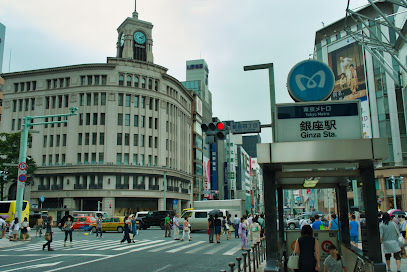
Angel of Ginza
1.4 km
Explore the enchanting Angel of Ginza, a stunning sculpture that embodies Tokyo's vibrant culture and artistic spirit in the heart of the Ginza district.
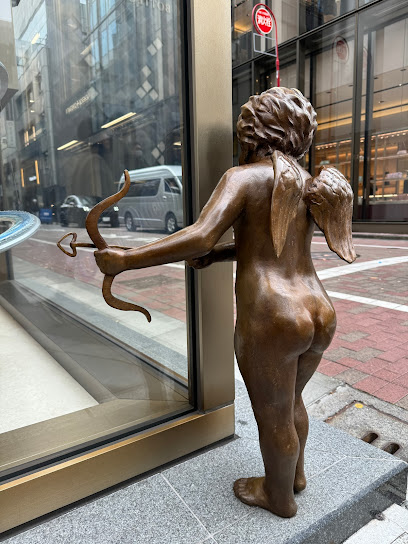
Ōte-mon Gate
1.4 km
Explore the stunning Ōte-mon Gate in Tokyo, a historical landmark that embodies the beauty of Japanese heritage and architecture.
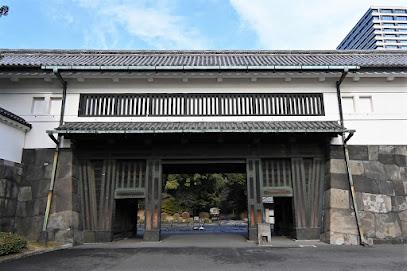
Young Clock Tower
1.5 km
Discover the Young Clock Tower in Tokyo's Ginza district, a stunning sculpture blending art, history, and the vibrant atmosphere of Japan's luxury shopping paradise.
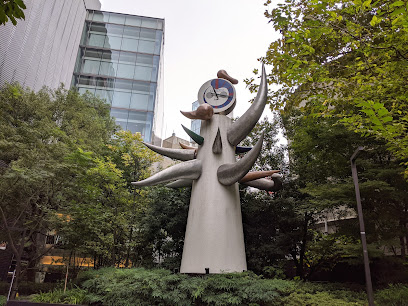
LIVE JAPAN office
1.6 km
Explore Tokyo like a local with insights from the LIVE JAPAN office at Tokyo Midtown Hibiya. Your gateway to unforgettable experiences in Japan.
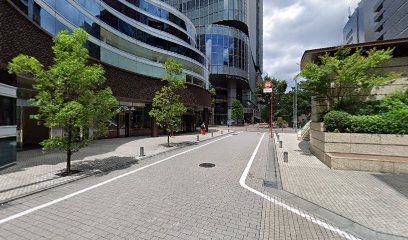
Unmissable attractions to see
Nihombashi Pier
0.3 km
Discover Tokyo from the water at Nihombashi Pier, a modern gateway to the city's historic waterways and iconic sights.
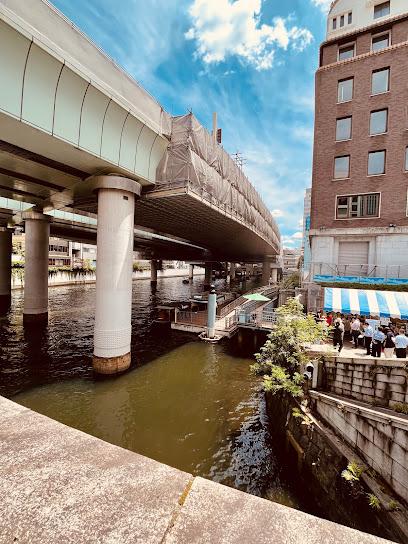
Mitsui Memorial Museum
0.6 km
Explore Japan's artistic legacy with a visit to the Mitsui Memorial Museum, featuring exquisite collections and cultural treasures in Tokyo.
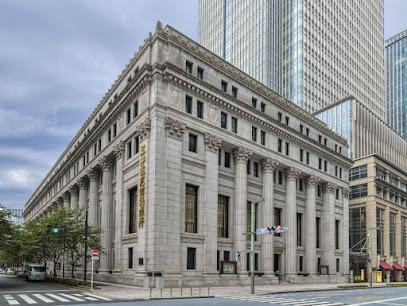
Fukutoku Shrine
0.7 km
Explore the tranquil beauty of Fukutoku Shrine in Tokyo, a cultural gem offering spiritual blessings and a serene escape in the city's heart.
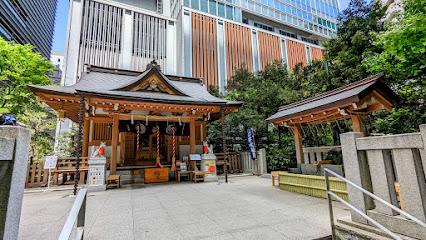
Tokyo Station Gallery
0.7 km
Discover art and history within Tokyo Station's iconic red-brick Marunouchi building, showcasing rotating exhibitions and architectural heritage.
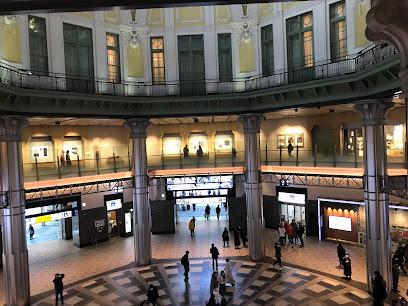
Tokyo City i
0.9 km
Explore Tokyo like a local at Tokyo City i—your essential hub for information, café relaxation, and cultural events in the heart of Marunouchi.
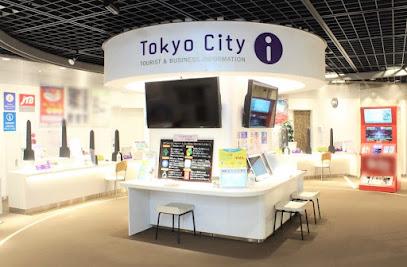
Ozu Washi
0.9 km
Discover the art of Japanese washi paper at Ozu Washi, a historic Nihonbashi shop offering paper, workshops, a museum, and cultural experiences since 1653.
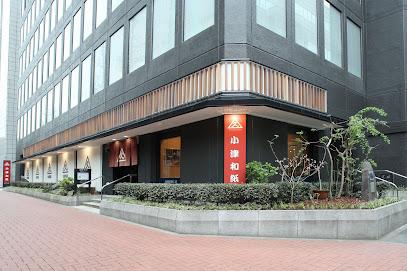
Marunouchi Building
0.9 km
A historic landmark reborn: Experience shopping, dining, and panoramic views in the heart of Tokyo's Marunouchi district.
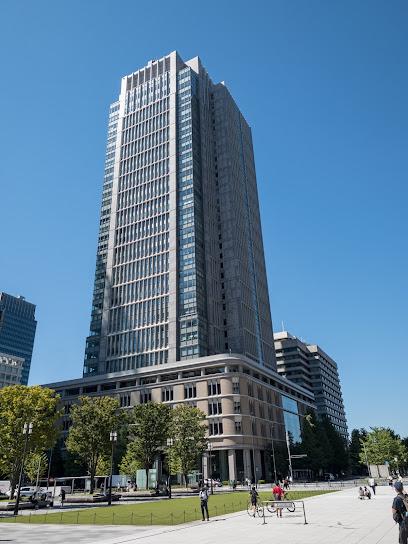
Amazakeyokocho
1.0 km
Discover the flavors of Tokyo at Amazakeyokocho, a bustling food alley offering traditional Japanese cuisine and local delicacies.
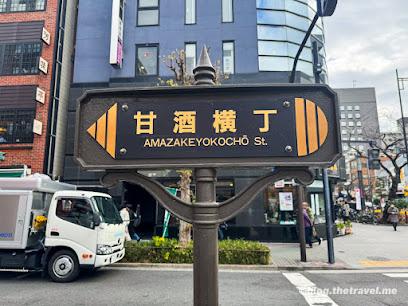
Ningyocho Mechanical Clock Tower - Rakugo Performer
1.0 km
Explore the enchanting Ningyocho Mechanical Clock Tower, a unique blend of Japanese culture, artistry, and history in the heart of Tokyo.
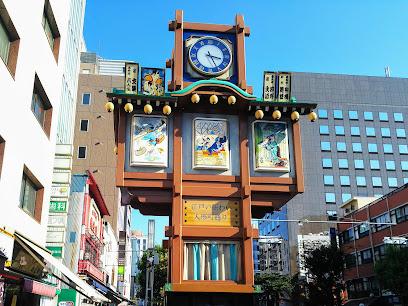
Suitengu Shrine
1.0 km
Explore the tranquil Suitengu Shrine in Tokyo, a spiritual haven dedicated to safe childbirth, surrounded by serene gardens and rich cultural heritage.
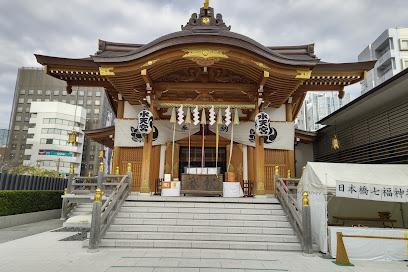
Tokyo International Forum
1.1 km
A stunning architectural landmark and vibrant hub for international events and cultural experiences in the heart of Tokyo's Marunouchi district.
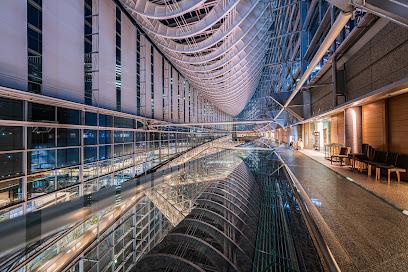
Cycling Holiday Tokyo
1.2 km
Discover the heart of Tokyo on a bike with Cycling Holiday Tokyo, where vibrant culture meets unforgettable cycling adventures.
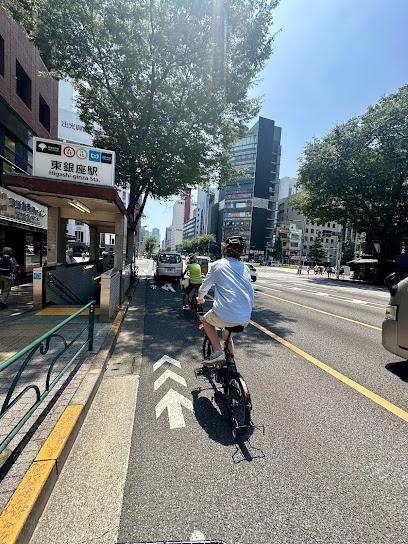
Japan's Top 100 Streets (Ginza 3-chome)
1.2 km
Experience Tokyo's Ginza 3-chome: Luxury shopping, fine dining, and vibrant culture in one of Japan's most iconic streets.
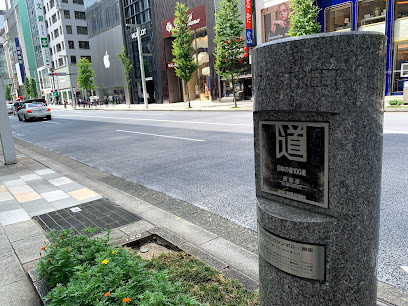
Wadakura Fountain National Park
1.2 km
A serene escape in the heart of Tokyo, Wadakura Fountain Park blends modern water features with historical Imperial significance.
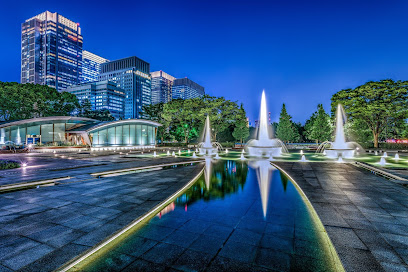
Ginza Central Street
1.2 km
Experience Tokyo's upscale Ginza Central Street: luxury shopping, fine dining, and vibrant cultural attractions in a sophisticated atmosphere.
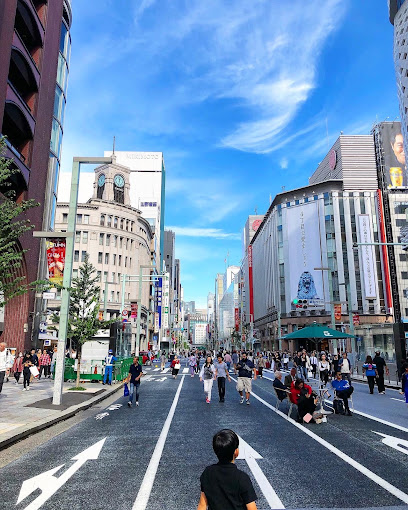
Essential places to dine
Taimeiken
0.4 km
Experience the unique fusion of Japanese and Western flavors at Taimeiken in Tokyo—home of the legendary omelette rice.
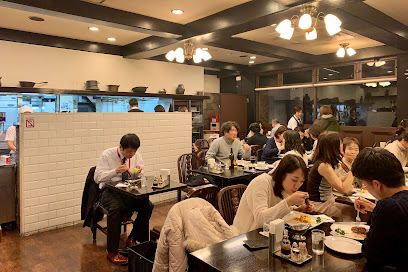
Nadaman at Shangri-La Hotel Tokyo
0.4 km
Experience the finest authentic Japanese cuisine at Nadaman in Shangri-La Hotel Tokyo - where tradition meets luxury.
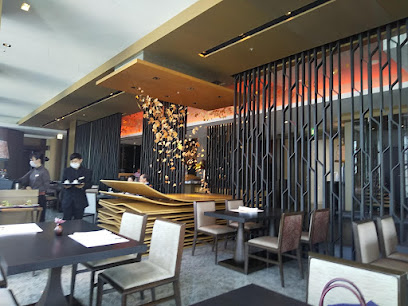
TATA
0.5 km
Experience the best of Japanese tapas at TATA in Tokyo's Chiyoda City - where flavor meets tradition in every dish.
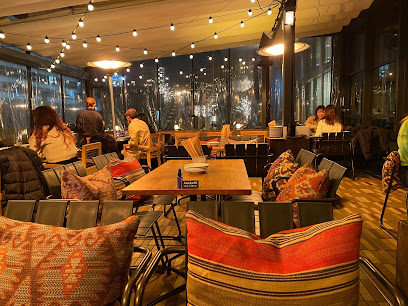
Sushi Hōseki - Kenji Gyoten
0.5 km
Discover the art of sushi at Sushi Hōseki - Kenji Gyoten in Tokyo, where tradition meets luxury for an unforgettable dining experience.
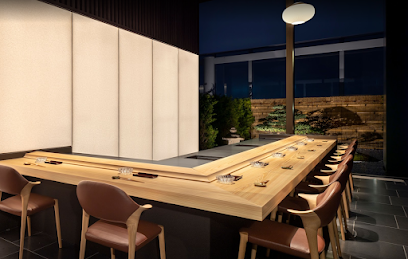
Yonezawa Gyu Oki
0.6 km
Discover the exquisite taste of Yonezawa beef at Yonezawa Gyu Oki—where tradition meets culinary excellence in Tokyo.
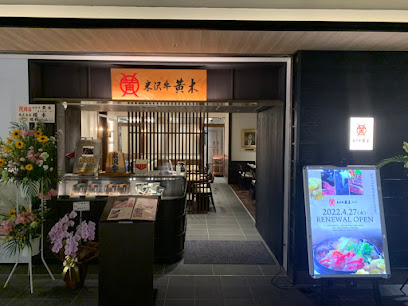
Ventaglio
0.6 km
Discover culinary excellence at Ventaglio, where Asian fusion meets Italian flair in the heart of Tokyo's Nihonbashi district.
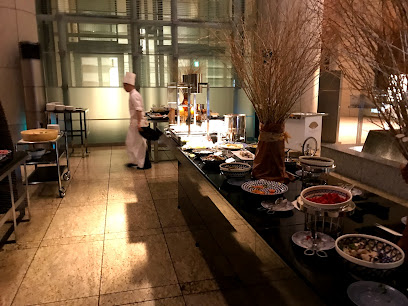
Signature
0.6 km
Experience exquisite French cuisine at Signature in Tokyo's Nihonbashi district, where every dish tells a story.

K'shiki
0.6 km
Experience authentic Italian cuisine at K'shiki in Tokyo—where every meal is crafted with passion and precision.
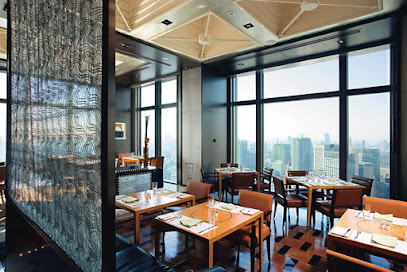
Tapas Molecular Bar
0.7 km
Indulge in innovative Japanese tapas at Tapas Molecular Bar in Tokyo – where traditional flavors meet modern culinary artistry.
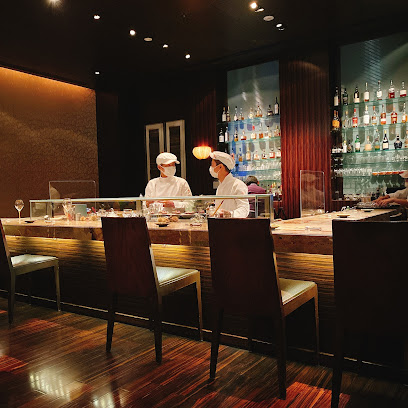
Ninja Tokyo
0.8 km
Discover the fusion of tradition and innovation at Ninja Tokyo—where every dish tells a story in an enchanting setting.
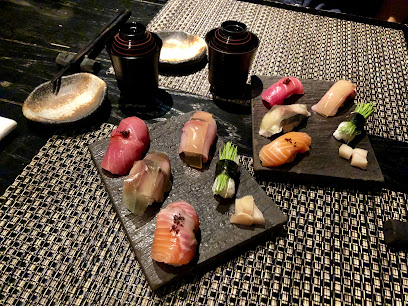
Japanese Restaurant
0.9 km
Experience authentic Japanese izakaya culture in Chuo City, Tokyo with exquisite dishes and a warm atmosphere.
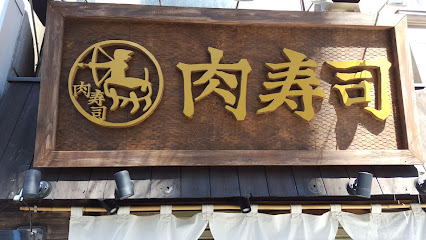
Musashi by Aman
0.9 km
Experience the art of sushi at Musashi by Aman – where tradition meets luxury in Tokyo's skyline.
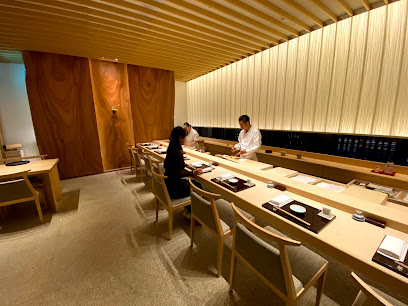
The Cafe By Aman
0.9 km
Discover unparalleled elegance and exquisite flavors at The Cafe By Aman in Tokyo's Otemachi Tower.
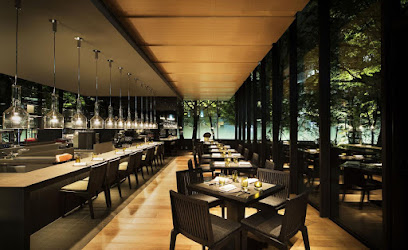
TOSA DINING おきゃく
1.0 km
Discover TOSA DINING おきゃく: A Culinary Journey Through Creative Japanese Cuisine in Tokyo's Iconic Ginza District.
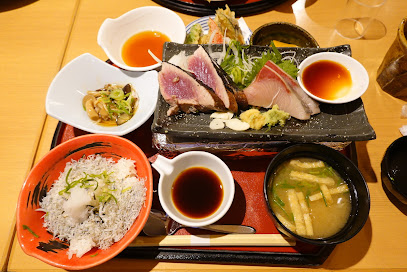
GINZA SUSHI BANYA KAI
1.0 km
Experience exquisite sushi and authentic izakaya dishes at Ginza Sushi Banya Kai in Tokyo's vibrant Ginza district.
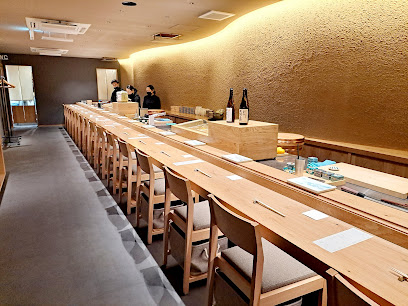
Markets, malls and hidden boutiques
Nihombashi Takashimaya S.C.
0.1 km
Discover the epitome of luxury shopping at Nihombashi Takashimaya S.C., where modern elegance meets traditional Japanese charm in the heart of Tokyo.
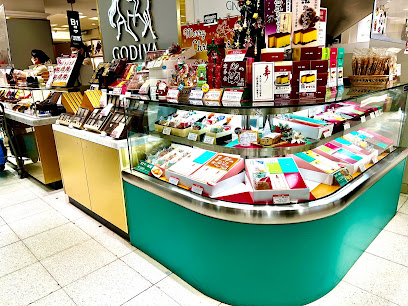
HANDS Tokyo Store
0.5 km
Explore HANDS Tokyo Store, a vibrant gift shop featuring unique souvenirs, DIY supplies, and a variety of home and stationery products in the heart of Tokyo.
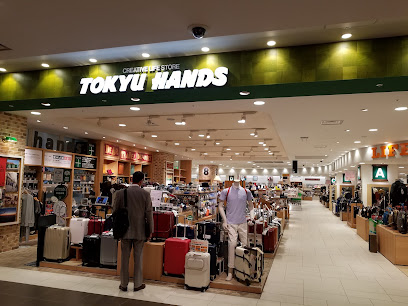
K-spot
0.5 km
Discover unique Japanese souvenirs at K-spot in Tokyo's Marunouchi, a perfect blend of tradition and modernity for every traveler.
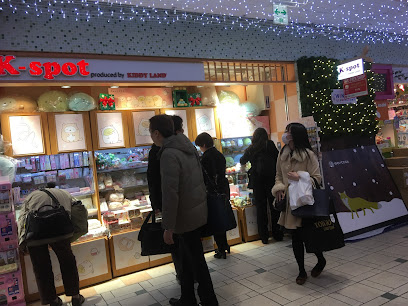
Tokyo Character Street
0.5 km
Explore Tokyo Character Street - A vibrant shopping mall celebrating the essence of Japanese pop culture with unique character-themed stores.
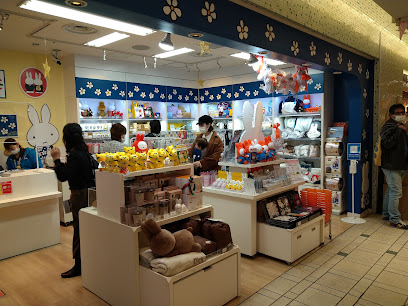
First Avenue Tokyo Station
0.5 km
Experience the heart of Tokyo at First Avenue Tokyo Station, a shopping and dining paradise beneath the iconic station.
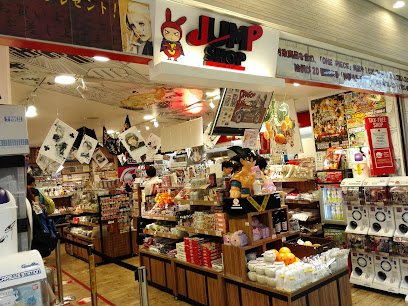
Gift Kiosk
0.6 km
Explore the vibrant Gift Kiosk in Tokyo for unique souvenirs that celebrate Japanese culture and make your travel memories unforgettable.
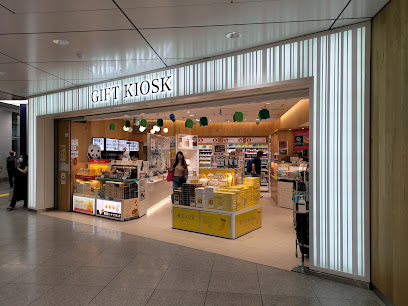
OLD-FASHIONED STORE TOKYO
0.7 km
Experience a delightful blend of nostalgia and modernity at Old-Fashioned Store Tokyo, where unique fashion accessories and novelty items await.
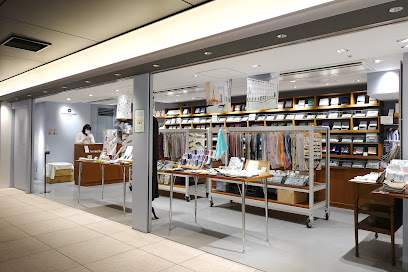
Another Japan
0.7 km
Experience the delightful fusion of Japanese sweets and souvenirs at Another Japan, a unique variety store in the heart of Tokyo.
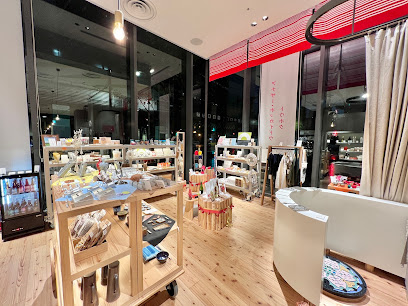
Nippon Department Tokyo
0.8 km
Discover the essence of Japan at Nippon Department Tokyo, your one-stop shop for unique souvenirs, local delicacies, and cultural treasures.
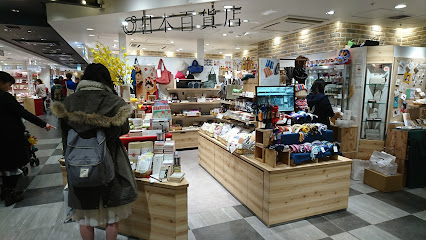
Eslite Spectrum Nihonbashi
0.8 km
Discover the charm of Eslite Spectrum Nihonbashi, Tokyo's cultural hub blending literature, shopping, and art in a stunning setting.
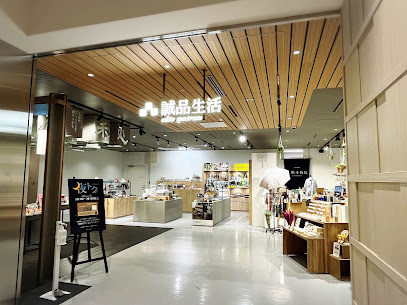
HATO MARCHE Gift Shop
0.8 km
Explore HATO MARCHE Gift Shop in Tokyo for unique souvenirs and gifts that embody the spirit of Japan, perfect for every traveler.
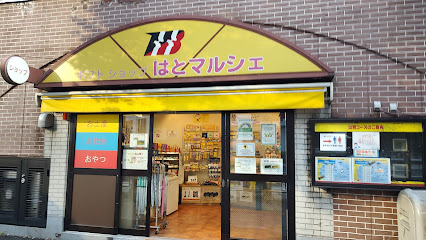
THE SHOP TOKYO
0.8 km
Explore the whimsical world of THE SHOP TOKYO, where unique gifts and delightful surprises await in the heart of Marunouchi.
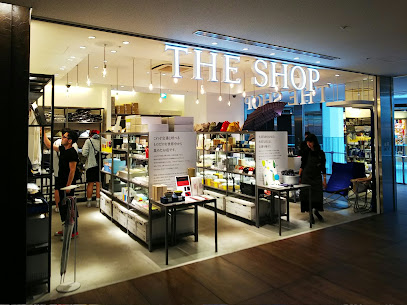
Good Design Store TOKYO by NOHARA
0.9 km
Explore Good Design Store TOKYO by NOHARA for unique gifts and home goods that reflect Japan's rich design culture.
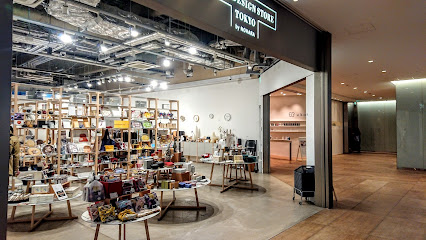
Caran d'Ache Boutique Ginza
1.0 km
Discover exquisite stationery and painting supplies at Caran d'Ache Boutique Ginza, Tokyo's premier destination for art lovers.
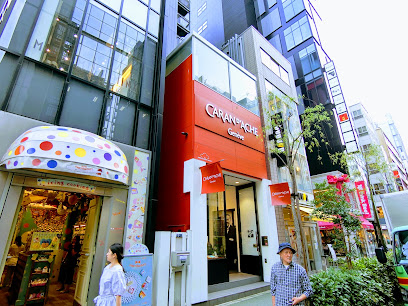
PLAZA Tokyo Store
1.0 km
Experience the vibrant shopping culture at PLAZA Tokyo Store, where unique finds and local flavors await you.
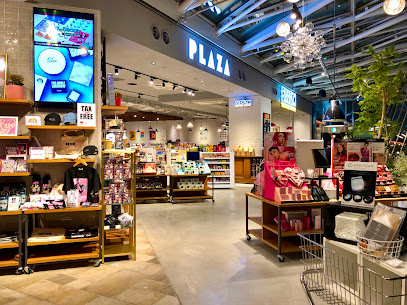
Essential bars & hidden hideouts
COCKTAIL WORKS Tokyo
0.2 km
Experience the dynamic nightlife of Tokyo at Cocktail Works, where expertly crafted cocktails meet a stylish ambiance in the heart of Nihonbashi.
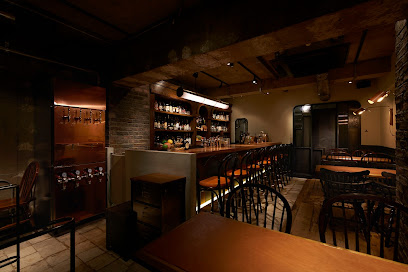
Kamiawa Bar
0.3 km
Discover the cozy charm of Kamiawa Bar in Tokyo's Yaesu district—where local flavors and warm hospitality await you.
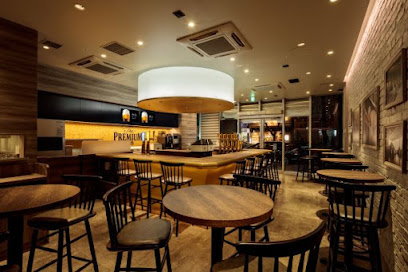
Bar Ocean
0.3 km
Discover the vibrant nightlife of Tokyo at Bar Ocean, where creative cocktails meet a lively atmosphere in the heart of the city.
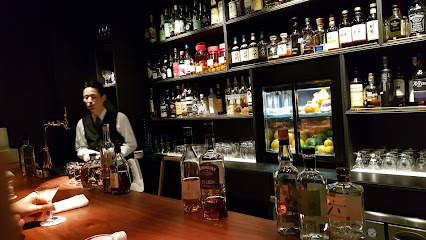
Hitachino Brewing Lab Tokyo
0.5 km
Discover the art of craft brewing at Hitachino Brewing Lab Tokyo, where tradition meets innovation in every sip.
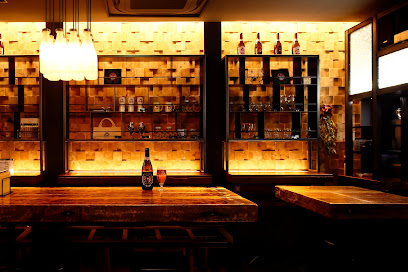
Hitachino Brewing Marunouchi
0.6 km
Experience the essence of Japanese craft brewing at Hitachino Brewing Marunouchi, a vibrant brewpub in the heart of Tokyo offering unique beers and delicious cuisine.
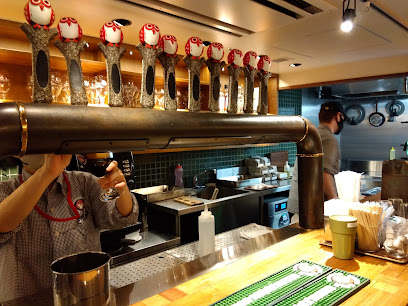
Mandarin Bar
0.7 km
Experience elegance and stunning views at the Mandarin Bar, Tokyo's premier destination for exquisite cocktails and fine dining.
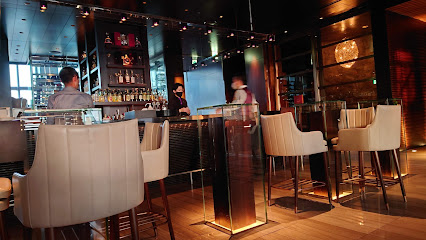
BAR Oak
0.8 km
Discover the elegance of BAR Oak, a luxurious bar within Tokyo Station Hotel, offering exquisite cocktails and a serene ambiance in the heart of Tokyo.
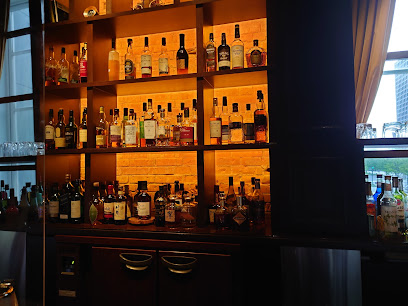
RIGOLETTO WINE AND BAR
0.9 km
Experience the best of Italian and Spanish cuisine at Rigoletto Wine and Bar, featuring an exquisite wine selection in Tokyo's Marunouchi district.
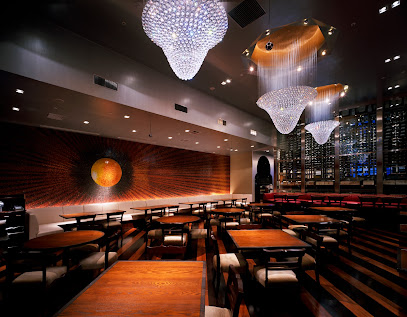
Star Bar Ginza
1.0 km
Discover the refined cocktail experience at Star Bar Ginza, where expert mixologists create exceptional drinks in a chic setting.
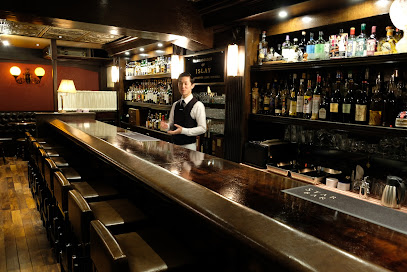
BAR PENGUIN
1.0 km
Experience the vibrant nightlife of Tokyo at Bar Penguin, a cozy bar in Ginza with exquisite cocktails and a welcoming atmosphere.
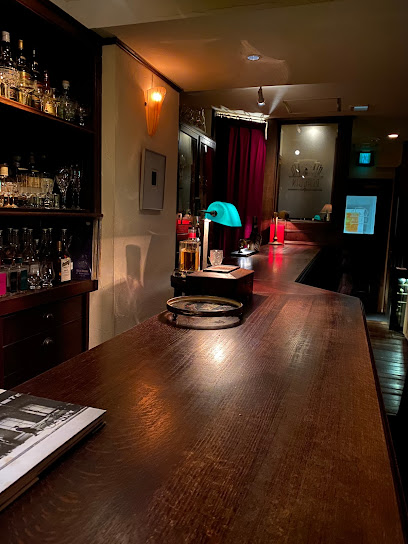
Bar Takasaka
1.0 km
Experience the vibrant nightlife of Tokyo at Bar Takasaka, where expertly crafted cocktails and an inviting atmosphere await.
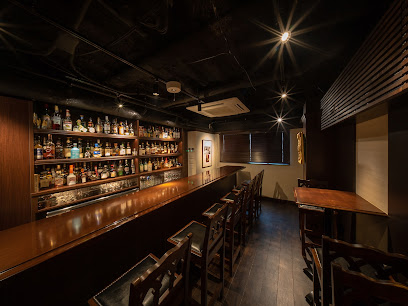
MOD
1.2 km
Experience the heart of Tokyo's nightlife at MOD, a trendy bar offering a vast selection of whiskies and a cozy atmosphere.
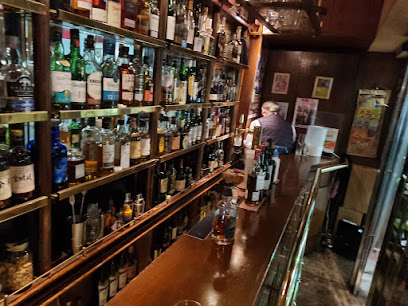
MAIN BAR
1.2 km
Discover sophistication and exquisite cocktails at MAIN BAR, an upscale bar experience in the heart of Tokyo's Marunouchi district.
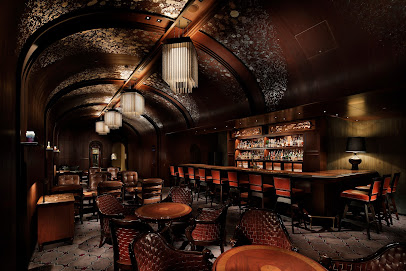
VIRTÙ
1.3 km
Experience a unique blend of French and Japanese cuisine at VIRTÙ, Tokyo's premier bar and restaurant in Otemachi.
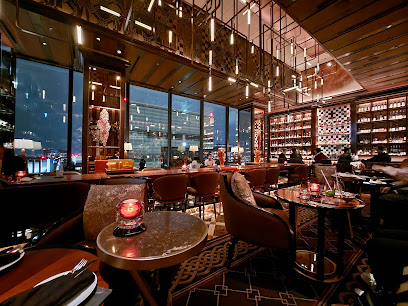
Bar Four Seasons
1.3 km
Experience the elegance of Bar Four Seasons in Ginza, Tokyo's premier destination for exquisite cocktails and a sophisticated atmosphere.
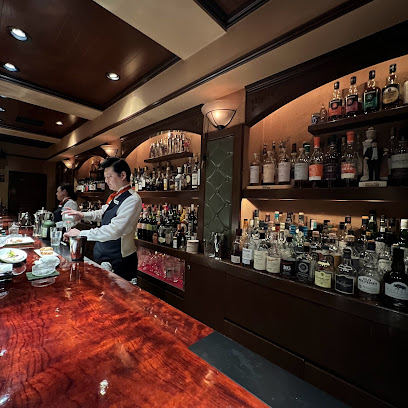
Nightclubs & after hour spots
Night Club Raise
1.5 km
Immerse yourself in the exhilarating nightlife of Tokyo at Night Club Raise, where music and vibrant energy create unforgettable memories.
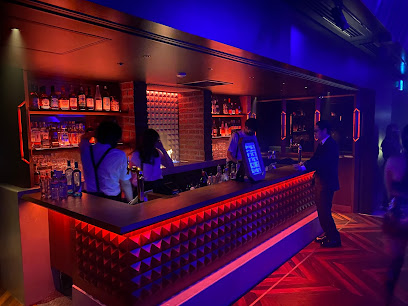
ジニアス東京
1.6 km
Discover the electrifying nightlife of Geniustokyo, a premier night club in the heart of Ginza, where music and energy meet for an unforgettable experience.
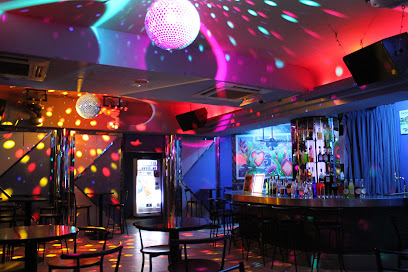
CATTUS
1.6 km
Experience the electrifying nightlife of Tokyo at CATTUS, Ginza's premier night club, where music and energy meet in an unforgettable atmosphere.
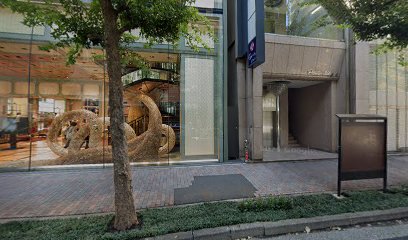
club Lounge Uen (ゆえん)
1.7 km
Discover the energy of Tokyo's nightlife at Club Lounge Uen, a stylish club in the heart of Ginza with exceptional drinks and captivating ambiance.
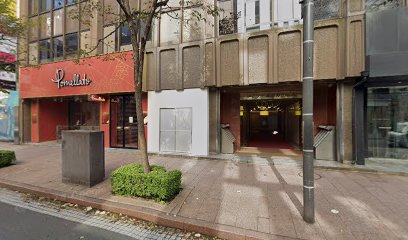
Zouk Tokyo
1.7 km
Experience the electrifying nightlife of Zouk Tokyo, where world-class DJs and an immersive atmosphere create unforgettable nights in the heart of Ginza.
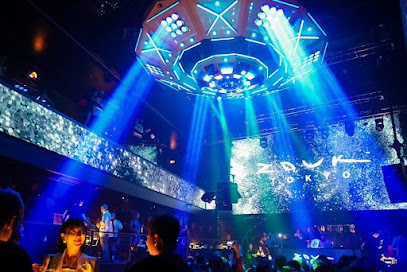
club socie GLAM CLUB
1.8 km
Experience the electrifying nightlife at Club Socie, Tokyo's premier night club in the vibrant Ginza district, where luxury meets excitement.
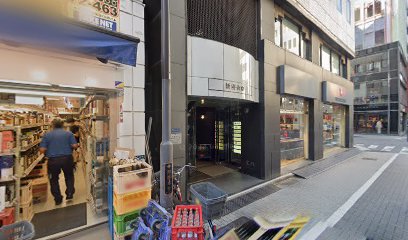
銀座九尾
1.9 km
Discover the ultimate karaoke experience at 銀座九尾 in Ginza, Tokyo, where entertainment meets style in a vibrant nightlife setting.
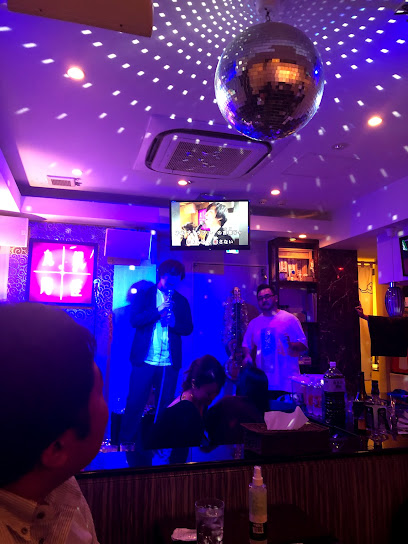
Ginza Club Cotton Club
1.9 km
Discover the heart of Tokyo's nightlife at Ginza Club Cotton Club, where cabaret meets live music in a vibrant atmosphere.
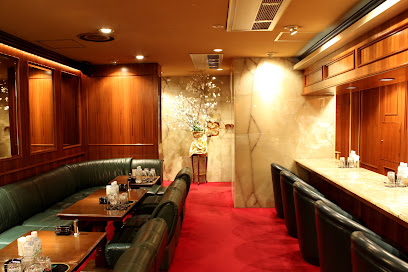
オアシス GENTLEMAN CLUB OASIS
1.9 km
Discover the vibrant nightlife at GENTLEMAN CLUB OASIS, Tokyo's premier night club and cabaret in the upscale Ginza district.
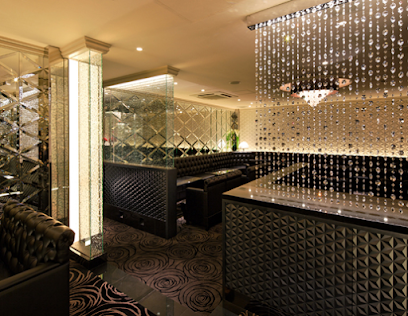
CLUB LEGACY(レガシー)
1.9 km
Discover the vibrant nightlife at CLUB LEGACY, Tokyo's premier cabaret club, where entertainment and excitement await every visitor.
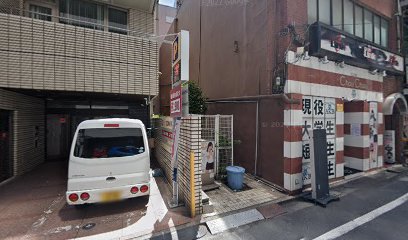
Chouchou Akihabara
1.9 km
Experience the enchanting world of cabaret at Chouchou Akihabara, where dazzling performances meet the heart of Tokyo's nightlife.
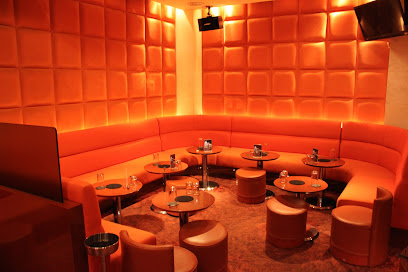
YAH TOKYO
1.9 km
Discover the lively ambiance and unique hospitality of YAH TOKYO, a premier girl bar in Ginza, where unforgettable nights await.
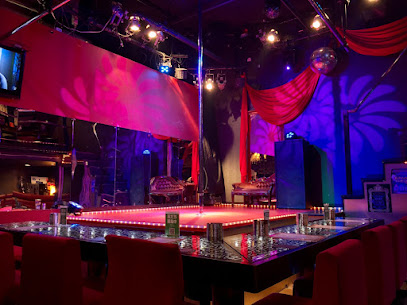
Club Platinum
2.0 km
Experience Tokyo's nightlife at Club Platinum, where vibrant cabaret performances meet exquisite hospitality in Akihabara.
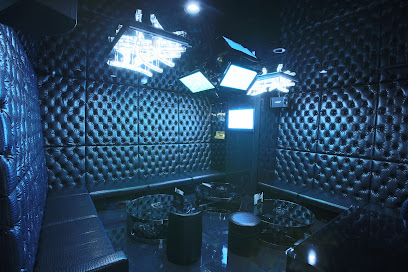
M kaupili club
2.0 km
Discover the vibrant nightlife of Tokyo at M kaupili Club - where spirited beats and electrifying dance create unforgettable moments.
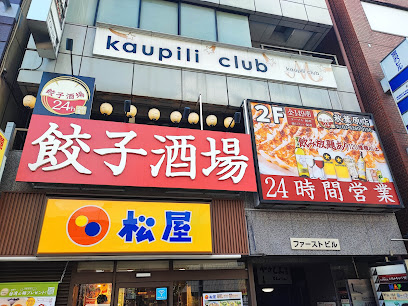
マベル Club Ma.Belle
2.0 km
Discover the vibrant nightlife of Tokyo at Club Ma.Belle, where captivating performances and a lively atmosphere await you.
